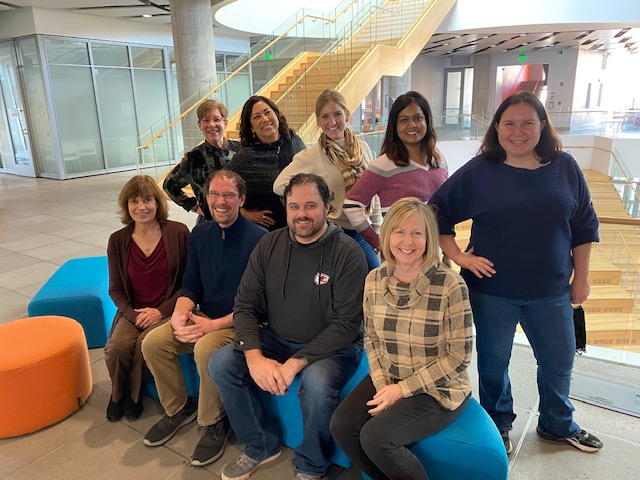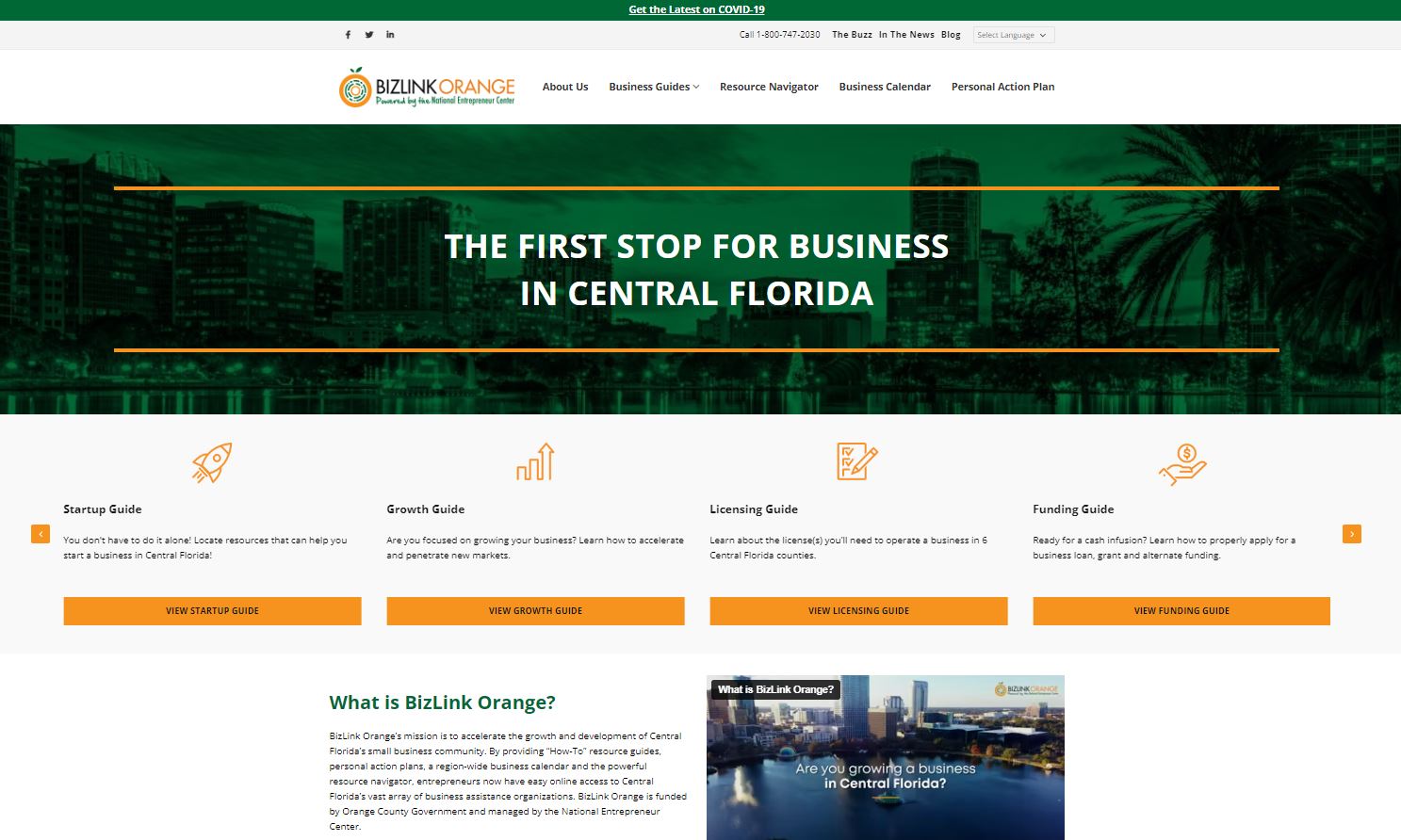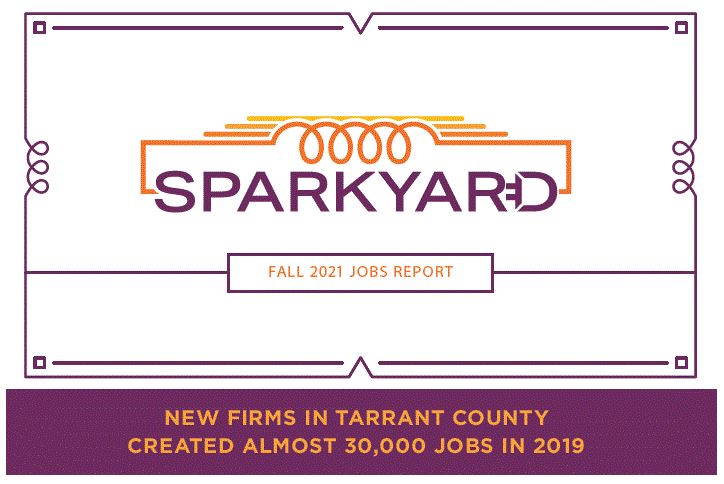As an entrepreneurship ecosystem builder and national network connector, I have the opportunity to speak to a variety of people and organizations–such as economic developers, ecosystem builders, government leaders and entrepreneurs–interested in improving the economic success of their communities by supporting entrepreneurs. While these communities vary in location, size and resources, I often hear recurring themes in those conversations of similar challenges they face when it comes to driving small business success.
After recently attending the International Economic Development Council Economic Future Forum conference, participating in the ongoing Ecosystem Building Leadership Project and having daily community conversations, I’ve realized that ecosystem builders could benefit from hearing our insights on these common questions. After working with almost 200 communities, here are some of the most common questions SourceLink receives and challenges we help communities solve for:
1. Who is SourceLink?

Founded in 2003 with support from the Ewing Marion Kauffman Foundation, the University of Missouri-Kansas City, and the U.S. Small Business Administration, SourceLink is a national leader that empowers community advancement through entrepreneurship-led economic development. Our mission is to make entrepreneurship easier, and we work with government officials, economic developers, and community leaders to build diverse and equitable entrepreneurial ecosystems that support startups, accelerate business growth, create jobs, and strengthen local economies.
In 19 years of operating, SourceLink has assisted almost 200 organizations with entrepreneurship and community development initiatives, helping them define and reach their unique goals for success. While our expertise lies in the field of entrepreneurship-led economic development, we’ve supported data collection and analysis projects in other industries such as broadband, health care, experiential learning and affordable housing. Our current network is made up of more than 80 affiliates and 5,000 business building organizations serving over 650,000 entrepreneurs across the continental U.S. and Puerto Rico. The network includes eight statewide ecosystems that connect local and regional resources to serve entrepreneurs in all parts of the state, both rural and urban.
2. My community is unfamiliar with entrepreneurship-led economic development. How do we facilitate discussion around the topic and begin building our ecosystem?
The best way to build an entrepreneurship ecosystem is to start with a basic understanding of what resources you have, then identify and fill gaps. Asset mapping is a great first step for communities looking to develop a baseline understanding of the business-building resources that are currently available and what makes your community unique. This type of assessment always results in gap identification and powerful recommendations for strategic data-driven decision making.
You don’t need funding to start this process, and we’ve seen community volunteers step up and convene local resource organizations for exploratory conversations. West Virginia Business Link did this before their network was formalized. Former program director Bill Woodrum said, “We started the ecosystem work long before we had our first grant or corporate dollar to support it. The first two years we only had a volunteer coordinator before the state stepped up to create West Virginia Business Link. I think a large part of our success was because we started the work without thinking ‘first we need to get a grant’. Our MVP (minimum viable product) was a monthly zoom and a google calendar. We built forward from there.”
Other communities seek funding to support early-stage ecosystem building through programs like the National League of Cities City Inclusive Entrepreneurship Network. In this program, Mayors make a commitment to mapping entrepreneurial resources and are eligible to apply for grant funding to support the development of a visual asset poster and insightful benchmarking report. This process has been successful in a variety of communities including Easthampton, MA and Monmouth, OR.
Some other ways to kickstart entrepreneurship-led economic development in your community:
- Explore books, thought leadership articles and success stories and share them with your network to show the importance and power of entrepreneurship-led economic development strategies
- Host a workshop facilitated by an experienced entrepreneurship ecosystem builder who can lead your community through the discovery process, help gain buy-in and create actionable agendas to improve the infrastructure of support for entrepreneurs
- Email me ([email protected]) to access an Entrepreneurship Ecosystem Network Strength Scorecard you can use to assess the strength of your community’s ecosystem
Become a certified Entrepreneurship Development Professional
3. Our resource network is disconnected. We don’t have a “hub” for entrepreneurship or one central place we can direct people to for assistance. How can we fix this?
Both entrepreneurs and community leaders often tell us that it’s difficult to know where to turn for business help, and that there’s a lack of awareness of networking events and business classes available in any given community. Creating an online hub that showcases your resource network and celebrates e-ship in your community is one of the best ways to drive economic impact.
A website platform offers a central point for visibility and connection, providing 24/7 access to events, reports, business guides, entrepreneurial success stories and other points of connection and education for entrepreneurs, resource organizations, public/private sector, investors, job seekers, and other community stakeholders interested in entrepreneurship. Every community is different and you can build your own brand based on what resonates with your audience—here are some examples from Florida, Washington, Nebraska and Texas.

More important than the platform itself are the relationships leveraging the technology. A key part of connecting your network is developing trust, and it’s important to not skip key relationship building steps along the way. Approach this work with a Diversity, Equity and Inclusion focus and include organizations that specialize in serving underrepresented groups. Additionally, consider recruiting partners outside your traditional resource organizations i.e. SBDCs and SCORES. Does your community provide pro bono legal services, have retired business owners who can offer mentoring, library programs for small businesses, free childcare services for moms pursuing entrepreneurship, or multi-lingual services?
When inviting resource partners to join your network, make sure they understand why this work is important and how it benefits them. Make sure they know that your goal is to connect entrepreneurs to the right resource at the right time. Engaging in this initiative offers your resource partners free visibility and higher-quality referrals.
Once you’ve done the work to build your hub, don’t let these relationships go dormant. Continue to host conversations with your network to understand what entrepreneurs need and how to fill those gaps.
4. How do we track and measure entrepreneurial activity? Right now, we’re making anecdotal decisions and don’t necessarily know what entrepreneurs need. We want to make data-driven program decisions and be able to demonstrate impact to our community and stakeholders.
First, define what “success” looks like to you and your stakeholders. Are you focused on tracking job creation? On understanding the most common barriers entrepreneurs in your region face when starting a business? On creating more resources for BIPOC entrepreneurs? When you define your goals, you can work towards measuring outcomes and understanding when you’ve made progress.
Tracking progress can be done in a number of ways. We recommend using a CRM to capture data from your website, Google Analytics, social media channels and newsletters. Additional metrics might include gathering information about entrepreneur demographics, job creation, capital raised, counseling hours, client interactions, survey responses, referrals to resources and overall economic impact.
When you’re armed with data about your ecosystem, you can make confident program decisions and keep your stakeholders and community informed through jobs reports and impact reports. Tracking these insights will help you celebrate entrepreneur successes and tell the story of the impact of your work and even help justify a need for additional funding to fill identified opportunities.

5. Does SourceLink have solutions that work in any size community?
The SourceLink model for building entrepreneurial ecosystems works in communities of all sizes. The solutions are adaptable—some of our affiliates take an al a carte approach, while others opt for the full suite of software and consulting tools. The important thing to remember is that ecosystems aren’t built overnight, and it takes time to make an impact. Just know that every community has resources, despite size or perceived isolation. Start where you are and build on the existing strengths of your region. New Bedford is building on a prosperous maritime industry and incorporating related resources into their entrepreneur support strategies. Rural northern Wisconsin is capitalizing on their rich network of retired business owners and recruiting them to be mentors and consultants.
Don’t forget to leverage strategic partnerships. Consider pulling in partners from nearby regions or adopting a statewide model. A collaborative approach drives development and can lead to powerful economic outcomes. And remember that technology solutions and relationship building must go hand-in-hand to advance entrepreneurship. It is difficult to be successful with one and not the other.
Contact Us
The good news is that you’re not alone. Many communities have the same challenges and questions, but there are resources to help. I invite you to check out our comprehensive list of annual events to connect with others interested in this work. You may also find valuable insights in our collection of blogs on trending topics related to entrepreneurship ecosystem building.
And of course, feel free to reach out to me at [email protected] if you would like to learn more about how SourceLink can help.

